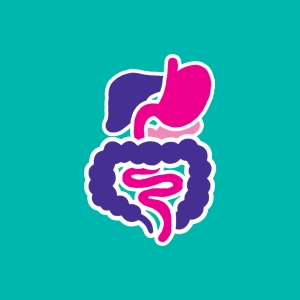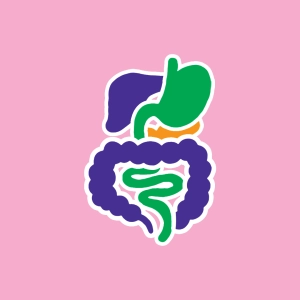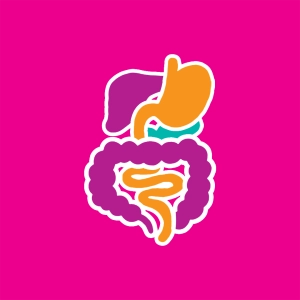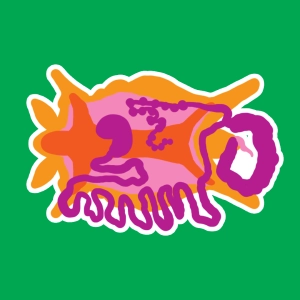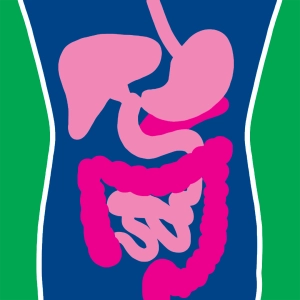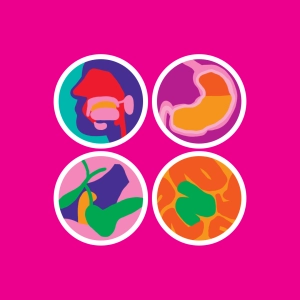 Digestive enzymes
Digestive enzymes
Learning objectives
- To understand the roles of saliva and gastric juices, pancreatic and intestinal.
- To understand the process of simplification of large molecules in nutrients absorbed by the body.
During digestion, the chemical action of the enzymes in the digestive juices (saliva, gastric juices, pancreatic and intestinal) allows the fragmentation of the macromolecules, making up the food, into simple molecules, nutrients.
Molecular simplification of the different types of foods (carbohydrates, proteins, lipids) occurs throughout the digestive tract:
- carbohydrates such as starch (long chains of glucose molecules) are cut into simple sugars (glucose) or double sugars (maltoses) by enzymes of the saliva in the mouth and then by pancreatic enzymes (the duodenum) and finally at the small intestine by intestinal enzymes.
- the protein or proteins (long chains of amino acids) are cut into small peptides and free amino acids by gastric enzymes (in the stomach), then by pancreatic enzymes and finally by intestinal enzymes.
- lipids such as triglycerides are split into free fatty acids and free glycerol by gastric and pancreatic enzymes.

Discover EduMedia for free
The interactive encyclopedia that brings science and math to life in the classroom.
Over 1,000 resources

